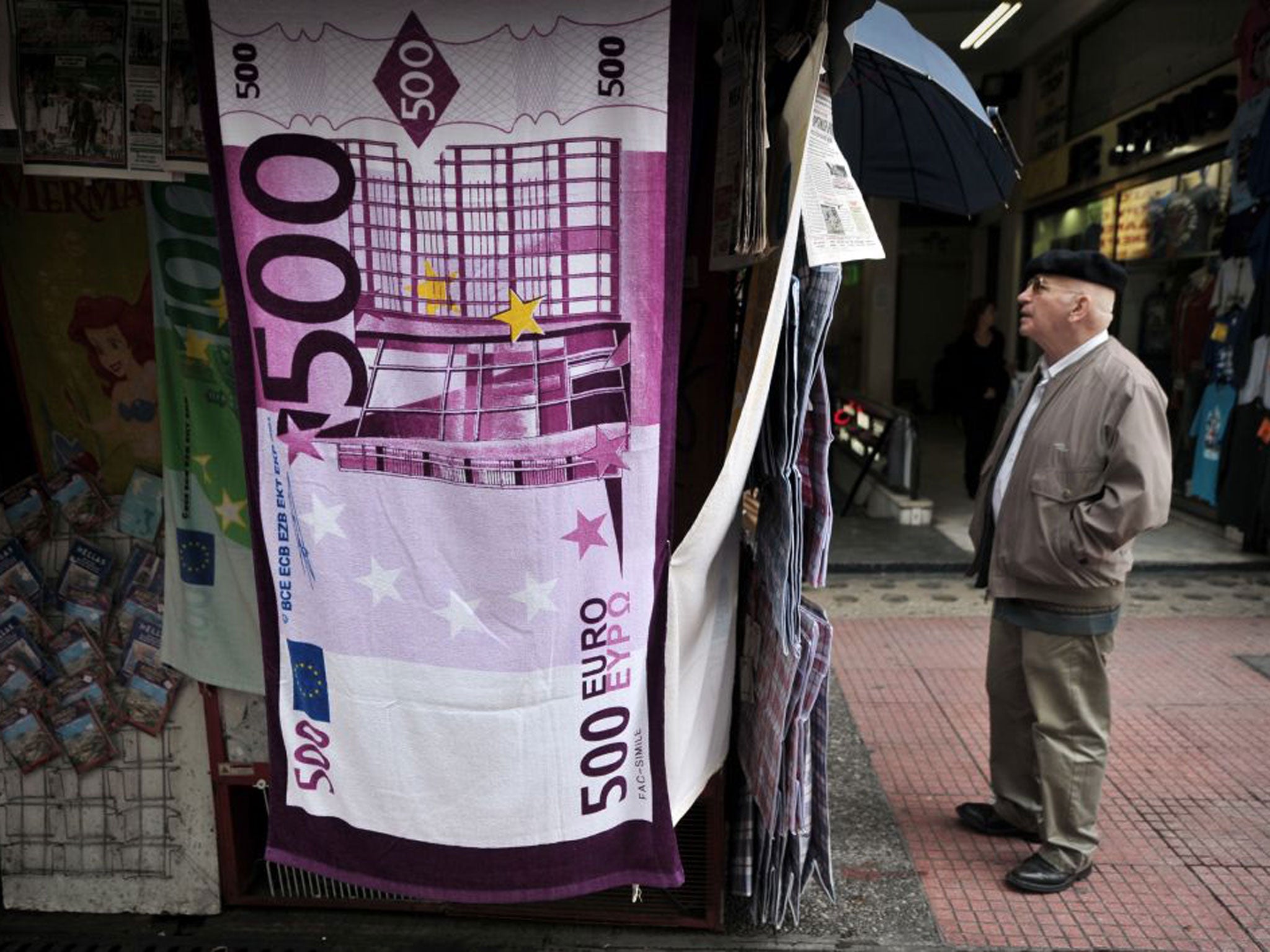Money Talks: What to do when lumped with a €500 note
The highest-value euro note is a hefty €500, but if you find yourself in possession of one, it could be more hassle than it’s worth, says Simon Calder

In daily life in Britain, few of us encounter our largest banknote: the £50. But compared with the highest-value bill in the eurozone, it constitutes small change. The top of the currency tree in Europe is occupied by the €500 note, worth about £400. And, if like a listener to Radio 4’s Money Box programme, you find yourself landed with two of them, you could struggle to spend or convert them.
When the Money Box team told me about the case of Mark from East Sussex, who received his €1,000 fee for a lecture in Croatia in just two banknotes, I investigated how travellers could be stumped by high-value notes.
Q. Who uses €500 notes?
A. Not the average European traveller. The denomination was introduced because several nations that signed up for the euro had high-value notes and a strong dependence on cash. Germany had a 1,000 Deutschmark note, which was worth almost €500.
With similar high-value notes used in Austria, Belgium and Holland, it seemed a natural step to have a large euro note. But the euro was quickly recognised as a global currency – and organised crime immediately recognised its potential for increasing the ease with which they could move cash around.
Cash says less about the bearer than a bank account ever can, and for villains keen to move illicitly acquired money around, portability is a virtue. One million pounds in £50s weighs about 20kg, while the equivalent value in €500s weighs only 2.5kg.
According to the Serious Organised Crime Agency, the vast majority of €500 note are handled by criminals, who account for more than 90 per cent of UK demand for the note. “Crime is a cash-based business, and paying large amounts of cash into the banking system attracts unwelcome attention,” says Soca.“Instead, criminals try to reduce the bulk of the cash as far as possible and move it undetected out of the country. Exchanging low-denomination notes for high- denomination notes has historically been a favourite way of doing this.” British banks stopped supplying the €500 two years ago – the highest value you can legitimately buy is €200, worth about £160.
Q. What if you inadvertently find yourself with a €500 or two?
A. You can’t buy a €500 here, nor break it into smaller-denomination euro notes, but you can exchange it for sterling at some places. Most high-street banks will accept €500 notes from customers, on the basis that if there are any problems with the notes they know where you live. Some bureaux de change will also change them. There are, however, a couple of conditions: you may well have to show your passport or driving licence, and you are likely to get a poor rate. A typical quote is €1.35 to the pound, compared with perhaps €1.28 or so for substantial quantities of “normal” notes.
Q. Is there a better solution?
A If you go to a big bank in a European city such as Amsterdam, Frankfurt or Vienna, you can ask to get a €500 or two changed, and – subject to security procedures – you will probably be successful. These cities are in countries which were accustomed to high denominations before the euro replaced their local currencies. But in France, the largest franc note was the 500, and in Spain the 10,000 peseta, both worth about £50, so you may be regarded with suspicion in Paris or Madrid. Or you could splurge the cash on a night at Hôtel de Crillon in the French capital, which (with breakfast) should leave you with a few small notes in change.
Q. What other large denominations can cause problems?
A. The biggest note I’ve found in a major currency is 1,000 Swiss francs, worth about £670; even in Zurich, you can expect raised eyebrows should you try to pay for a coffee with it. Elsewhere, the US $100 is difficult to offload – as are larger euro notes outside Europe. In Cuba, for example, so alarmed are many traders about accepting fake notes that if you try to spend or change a €50 or €100, you may have to provide your passport details in case there is a problem with the transaction. Small denominations avoid this issue, and are almost always the best choice for travellers. A common example shows why: you get a cab late at night, and hand over €50. The driver gives you change from €20, and then claims that is what you gave him. If you have nothing bigger than a €20, this cannot happen.
Q. Any other tips?
A. Tips, as in “filter”, is the operative word. Keep tabs on what else may serve as hard currency. Before the fall of communism in Romania, the extensive black market was based upon an unusual currency: State Express 555 cigarettes. They were dreadful to smoke, but nobody ever did because – when sealed in cellophane – they were recognised as the best store of wealth. Travellers like me took them in and lived like kings thanks to the king-sized cigarettes.
Click here to view our latest travel offers with Independent Holidays
Join our commenting forum
Join thought-provoking conversations, follow other Independent readers and see their replies
Comments
Bookmark popover
Removed from bookmarks